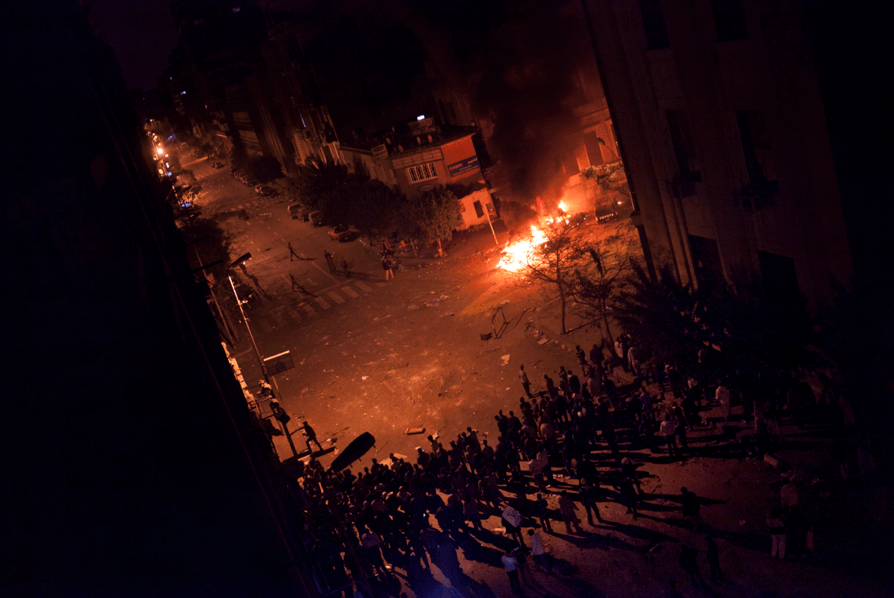With the breakout of thousands of prisoners in Egypt, there was increased international concern that newly-freed leaders of the Muslim Brotherhood could reorganize and leverage Egypt’s unrest and government weakness to increase the organization’s influence in the country. Police remained largely absent from the streets, particularly in Cairo, which contributed to general chaos and looting.
Egyptian opposition figure Mohamed ElBaradei joined fellow Egyptians in Tahrir Square, defying the government-imposed curfew. “The people want the regime to fall” was chanted in the square as military helicopters and fighter jets flew overhead. ElBaradei, now officially backed by various opposition groups (including the Muslim Brotherhood), announced to the crowds of protesters: “You are the owners of this revolution. You are the future. Our essential demand is the departure of the regime and the beginning of a new Egypt in which each Egyptian lives in virtue, freedom, and dignity.”
As protests continued in Cairo, large-scale demonstrations again erupted in Alexandria following the funerals of several victims of prior clashes between protesters and security forces. The nationwide death toll over the last six days was reported to have breached 100by The Guardian, while Al-Jazeera reported a total of 150 deaths since January 28 alone.
A local Egyptian TV station claimed that police were redeploying in certain Cairo neighborhoods to enforce the curfew, which was extended nationwide from 3pm-8am. However, demonstrators nationwide continued to show little respect for the restrictions, remaining present in Cairo’s Tahrir Square and conducting marches in Mansoura, Alexandria, and elsewhere in defiance of the curfew.
Al Jazeera Arabic’s (AJA) offices were ordered closed in Cairo due to allegations that the bureau’s paperwork and permits were not appropriately completed. AJA was then ordered to cease live broadcasts of the protests. The network’s close and ongoing coverage of the protests was seemingly considered to be encouraging their growth.
A group of Middle East scholars and American academics released an “Open Letter to President Obama” to demand change in Egypt. The letter called on the United States to encourage Mubarak to resign from office and to “allow Egyptians to establish a new government free of his and his family’s influence.”
